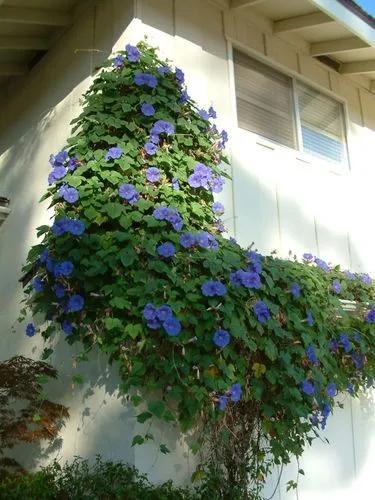Cynoglossum amabile, the Chinese hound's tongue or Chinese forget-me-not, is a species of flowering plant in the family Boraginaceae, native to Asia. A hardy annual growing to 50 cm (20 in), it has hairy leaves and cymes of sky-blue flowers in late summer.
Chinese Forget Me Not Care
Cynoglossum Amabile



How to Care for the Plant

Water

Water when the top 2 to 3 inches (5-7.6 cm.) of potting mix feels dry to the touch, then let the soil dry before watering again. Water only enough to keep the plant from wilting during the winter when forget-me-nots are dormant.

Pruning

Cut your forget-me-not back to the ground in late fall or early winter.

Fertilizer

Fertilize forget-me-not with compost or with a general-purpose fertilizer annually, as the plant performs better in soil with adequate fertility.

Sunlight

Chinese Forget-Me-Not plants will grow in sun or light shade in all regions of North America. Cynoglossum Amabile seeds germinate best if they are evenly spread into loosened bare ground and kept moist.

Soil

Cynoglossum Amabile does not have specific soil type requirements as long as it's well-drained.

Temperature

Chinese Forget-Me-Not plants are fond of areas that receive full sunlight, with temperatures of at least 70F, or more.

Additional

However, another variety, called the Chinese forget-me-not (Cynoglossum amabile) and the broadleaf forget-me-not (Myosotis latifolia) are considered mildly toxic to grazing animals eating these types of forget-me-nots. Myosotis scorpioides got its species name from the resemblance of its flower stalks to the tail of a scorpion. It is also known as Myosotis palustrus. The stems and leaves of forget-me-nots are covered with tiny hairs. Sprays of tiny blue flowers with yellow centers emerge from pink buds.

Popularity

817 people already have this plant 105 people have added this plant to their wishlists
Discover more plants with the list below
Popular articles






